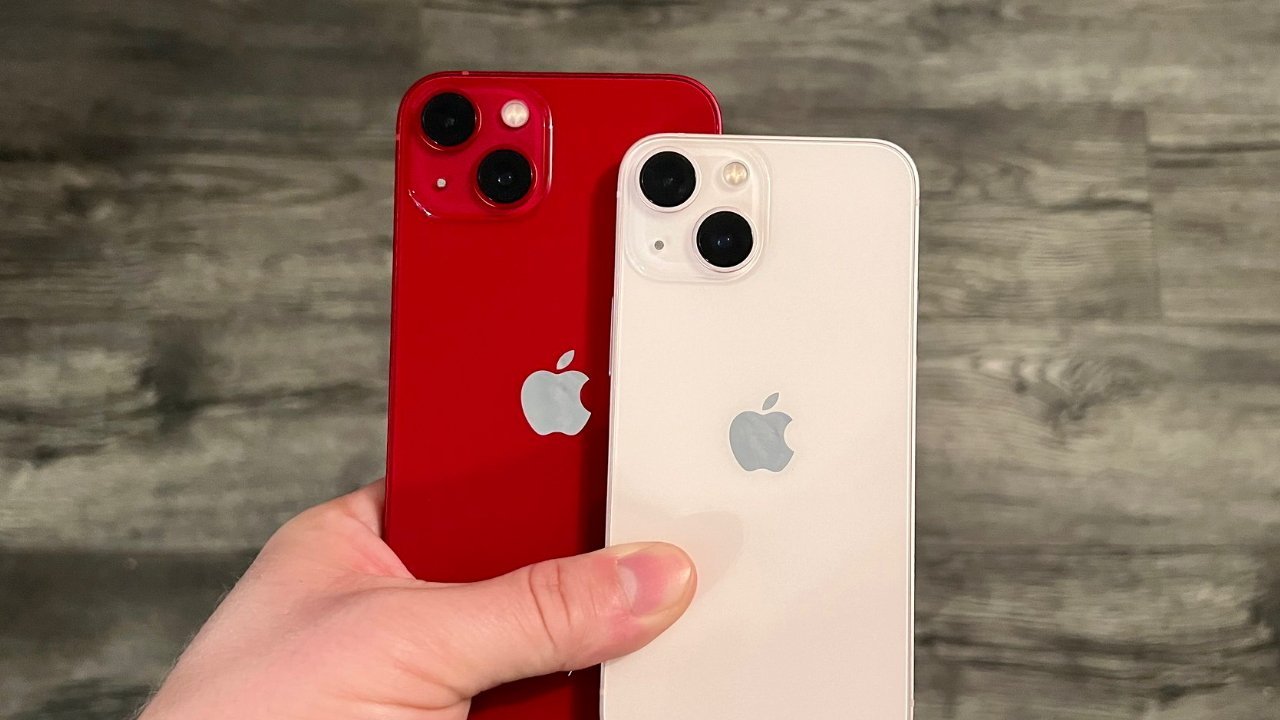The premium smartphone is expected to see the most growth of China of any market segment, and Apple is the best positioned to take advantage of this expansion.
In February, analysts said the iPhone helped recover China's smartphone market, with it outpacing local brands in November and December. Now, it seems that Apple could end up benefiting more, as the market is forecast to improve in its favor.
In a report by Counterpoint, China's premium smartphone market, deemed to be smartphones valued at $500 or more at wholesale, increased to more than 26% in 2022.
While the 26% is deemed to be low compared to other developed countries, it is reckoned that the appetite for premium models will grow, increasing the product mix for the market as a whole. Counterpoint's forecast is for the share of smartphones valued at $500 or more will reach 40% by 2035.
China's shipments did fall 16% year-on-year in 2022, reaching less than 280 million units, Counterpoint says, which is the lowest figure in close to a decade. Even so, China's still a massively important market, making up 22.6% of global shipments, higher than India's second-place 12.4% share.
While Counterpoint sees some are questioning the potential of the China smartphone market, the analysts believe the market downturn was made worse due to COVID-19, which affected consumer behavior. As China reduces its pandemic-related curbs and announced a 5% GDP growth target for 2023, Counterpoint reckons that the economy and consumer confidence should recover.
Premium smartphones are still a hefty contributor to China-derived smartphone revenues. While sales revenue fell 11.7% from a peak in 2016 to 2022, shipments dropped 41.5% over the same period, indicating a higher average selling price for devices.
While the 2022 share of premium sales is 26%, the same segment only made up 11% of sales in 2016.
Counterpoint believes that a number of factors will help bring the premium market closer to other regions, including 59.5% of the U.S. and 45.4% of Japan.
First, China's government announced it believes the disposable income of citizens will reach a new high in 2035, at the same time as a growth in the proportion of middle-income groups. Even if China doesn't reach a GDP per capita of $20,000 by 2035, Counterpoint reckons the ASP of smartphones will still grow along with long-term economic growth in the country.
Furthermore, smartphones will still "remain the most important carrier for people's entertainment, consumption, and social interaction," the Counterpoint report reads. With smartphone features also set to improve, such as larger screens, foldable displays, and anticipated performance improvements, it will become a greater focal point in people's lives.
 Malcolm Owen
Malcolm Owen

-m.jpg)






 Andrew O'Hara
Andrew O'Hara
 Wesley Hilliard
Wesley Hilliard


 Marko Zivkovic
Marko Zivkovic

 Chip Loder
Chip Loder
 Christine McKee
Christine McKee



-m.jpg)




3 Comments
26% to 40% by 2035 is very poor growth when compared to the US, Japan etc.
It's worth highlighting that the source article doesn't mention Apple a single time and items such as folding phones are listed as a driver to that growth and Apple does not have a folding phone. This article doesn't directly connect the two of course but it doesn't really make the separation clear either.
The US is far from representative of Apple’s performance in developed markets and is the result of historical reasons and also limitations which restrict competition to its activities there.
The reality is that Apple had to react to competition from more OEMs producing feature packed phones and stellar software at lower prices.
The big question is why China is expected to only reach that 40% over a decade from now.
The answer could well be the same as for the last decade: that huge jump in quality phones outside the top premium market. That is undeniable but those same OEMs have gone on record as wanting an ever increasing part of the ultra-premium pie. It's possible that most people simply won't need a premium phone. Just like now.
In fact, it is happening now. Just look at where OPPO, Xiaomi and Honor are now compared to five years ago. With the pandemic and the slump out of the way, they are setting their sights high in their home market without letting up in the mid range.
If anything, Apple is worse positioned than it was before so while the segment itself may grow slowly competition is likely to be more intense.
However, 2035 is frankly too far away to make predictions on and if anything, there are good reasons to suspect that phones themselves might be playing second fiddle to things like XR glasses by then.
In short, Apple does not play the marketshare game and never will. They play the profit share game. They focus on the upper end of the market as a vertical computer company last man standing, (in house OS software, and hardware) and not the low margin end of the market, after all this time, it continues to amaze me that people/analysts can’t figure that out. (the larger low margin PC/Android market seems to blind people?)
Apple‘s presence in China will just be one of the players in the high end of the market. The same goes for Europe, Japan, and South Korea. The only dominant area will be home field the USA, and their game plan is the same, in both a PC and smartphone market.